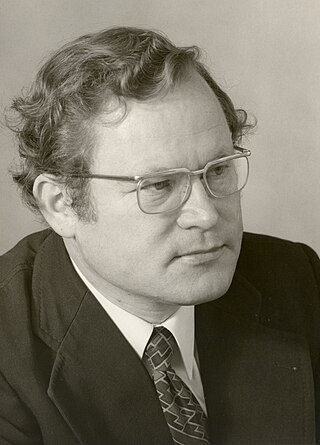
Graham Waterhouse is an English composer and cellist who specializes in chamber music. He has composed a cello concerto, Three Pieces for Solo Cello and Variations for Cello Solo for his own instrument, and string quartets and compositions that juxtapose a quartet with a solo instrument, including Piccolo Quintet, Bassoon Quintet and the piano quintet Rhapsodie Macabre. He has set poetry for speaking voice and cello, such as Der Handschuh, and has written song cycles. His compositions reflect the individual capacity and character of players and instruments, from the piccolo to the contrabassoon.

Gestural Variations, Op. 43, is a trio composition by Graham Waterhouse in 1997 originally for oboe, bassoon and piano. Later versions are scored for clarinet, cello and piano (1999) and flute, cello and piano (2009).

Piccolo Quintet is short for the Quintet op. 26 of Graham Waterhouse, composed in 1989 for piccolo and string quartet and published by Zimmermann in 2002 as Quintet for piccolo, 2 violins, viola and violoncello.
Rudi Spring is a German composer of classical music, pianist and academic. He is known for vocal compositions on texts by poets and his own, and for chamber music such as his three Chamber Symphonies.

The Bassoon Quintet is a quintet by Graham Waterhouse, composed in 2003 for bassoon and string quartet.
Jörg Duda is a German composer of classical music.

Gerhard Präsent is an Austrian composer, conductor and academic teacher.
The ALEA Ensemble is a chamber music ensemble founded in 1988 in Graz for contemporary music, playing in variable formation including the ALEA Quartet.

Herbert Blendinger was an Austrian composer and viola player of German origin.

Three Pieces for Solo Cello op. 28, is a composition for cello in three movements by Graham Waterhouse, dedicated to cellist Siegfried Palm in 1992. The composer, a cellist himself, wrote it to "exploit the characteristics" of his instrument. In 1996, a revised version won a composition prize and was performed at the Hochschule für Musik München. The work was published by the Friedrich Hofmeister Musikverlag in 1996 and recorded on a Portrait CD of chamber music in 2001.

Rhapsodie Macabre is a composition for piano and string quartet in one movement by Graham Waterhouse, written in 2011 as a homage to Franz Liszt. It was first performed at a Liszt festival of the Gasteig, Munich, with the composer playing the cello part.

Miku Nishimoto-Neubert is a classical pianist.

Graham Waterhouse, cellist and composer especially of chamber music, has written a number of works for string quartet, three major works in several movements, several smaller works and compositions for a solo instrument and string quartet.

The Cello Concerto, Op. 27, is a concerto for cello and orchestra by Graham Waterhouse, composed in 1990. It was first performed in 1995 in Toluca and Mexico City with the composer as the soloist, and published by Friedrich Hofmeister Musikverlag in Leipzig in 2000.

Bells of Beyond is a piano trio, composed in 2013 by Graham Waterhouse.

Katharina Sellheim is a German classical pianist, with a focus on chamber music and lied accompaniment. She has appeared in recitals internationally, collaborating with members of the Münchner Philharmoniker, and has been a lecturer at the Musikhochschule Hannover.

Konstantin Sellheim is a German classical violist, who has appeared internationally with a focus on chamber music. He is a violist of the Münchner Philharmoniker, and lecturer of viola at the Universität der Künste Berlin.

Skylla and Charybdis is a 2014 composition for piano quartet by Graham Waterhouse, played in four movements without a break. The title refers to Scylla and Charybdis, two sea monsters from Greek mythology. In performances in German-speaking countries, it has also appeared in English surroundings as Between Scylla and Charybdis.

Variations for Cello Solo is a composition written by Graham Waterhouse in 2019. The variations depict characters of personalities. The cellist and composer performed the world premiere in Vienna in 2020. The composition was published by Schott the same year.






